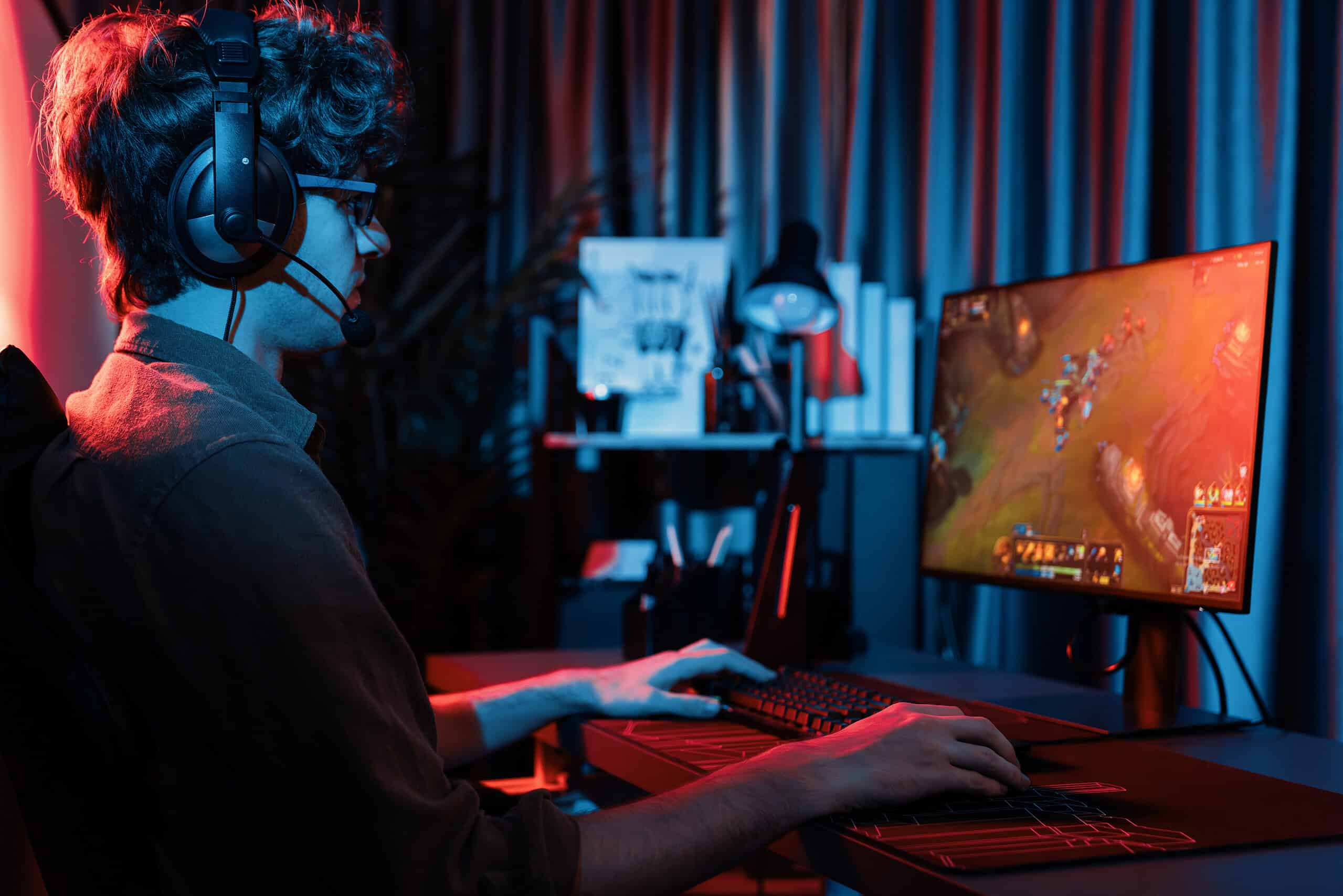Introduction to Gaming as an Escape
In recent years, video games have emerged as a prominent form of entertainment, providing a sanctuary for individuals seeking respite from the rigors of daily life. The concept of using gaming as a form of escapism has gained widespread acceptance, facilitated by the increasing accessibility of gaming platforms and a diverse array of game genres that cater to various interests. Gaming serves as a compelling outlet for many, offering an immersive experience that allows players to momentarily disengage from real-world stressors and immerse themselves in alternate realities.
The rise in popularity of gaming as a leisure activity is reflected in various statistics. According to a report by the Entertainment Software Association (ESA), approximately 214 million people in the United States play video games, with 75% of households having at least one gamer. The demographic landscape of gaming is broad, encompassing not only young adults but also older individuals, with the average gamer age being 35 years old. This demographic diversity underscores the universal appeal of gaming as a means of escapism.
The COVID-19 pandemic, marked by lockdowns and social distancing measures, further accentuated the role of gaming as a coping mechanism. During this period, the gaming industry witnessed a significant surge in engagement. Data from Nielsen indicates that video game usage increased by 45% in the United States during the initial months of the pandemic. This spike can be attributed to individuals seeking alternative ways to connect with others, alleviate boredom, and manage stress in an unprecedented global crisis.
As societal pressures and uncertainties continue to evolve, gaming remains a steadfast refuge for many. By offering a temporary escape, video games provide a unique form of relief and entertainment, allowing players to navigate through virtual worlds and narratives that offer a sense of control and accomplishment often elusive in real life.
Psychological Benefits of Gaming
Gaming has emerged as a potent tool for psychological well-being, offering a range of benefits that can significantly alleviate stress and enhance mental health. One of the foremost advantages of gaming is the sense of achievement it provides. Many video games are structured around goal-oriented tasks that, when completed, offer players a sense of accomplishment. This can be particularly uplifting during stressful periods, as it provides a tangible measure of success and progress, something that may be lacking in other areas of life.
In addition to individual achievements, gaming also fosters a sense of community and belonging. Online multiplayer games enable players to connect with others from around the world, forming friendships and support networks. This can be especially beneficial for individuals who may feel isolated or disconnected in their day-to-day lives. The shared experiences and collaborative efforts in these virtual environments can contribute to a sense of purpose and camaraderie, mitigating feelings of loneliness and social anxiety.
Scientific studies have also highlighted the role of gaming in improving mood and reducing anxiety. For instance, research has shown that engaging in immersive video games can lead to a decrease in stress hormones such as cortisol. The interactive nature of gaming allows individuals to immerse themselves in a different world, temporarily setting aside real-life stressors. This form of escapism can be a healthy way to manage stress, providing a mental break and helping to reset emotional states.
Psychologists underscore the importance of virtual worlds as safe spaces for emotional expression and exploration. Within these environments, players can experiment with different aspects of their identity and emotions without the fear of real-world repercussions. This freedom can facilitate emotional growth and self-understanding, offering a constructive outlet for dealing with complex feelings. By providing a controlled and engaging platform, gaming supports mental resilience and emotional well-being.
In conclusion, the psychological benefits of gaming are manifold. From fostering a sense of achievement and community to reducing stress and offering a safe space for emotional exploration, video games serve as a valuable tool for navigating the challenges of modern life.
Potential Drawbacks and Balance
While gaming offers an engaging escape from the stresses of reality, it is crucial to recognize the potential downsides associated with excessive gaming. One of the primary concerns is gaming addiction. Defined by an inability to control the amount of time spent playing, gaming addiction can lead to significant disruptions in daily life. Individuals may find themselves neglecting essential responsibilities such as work, school, or personal relationships. This neglect can result in deteriorating performance in various areas of life and strained social connections.
Social isolation is another significant issue linked to excessive gaming. Spending prolonged periods in virtual worlds can reduce face-to-face interactions and weaken real-world social bonds. This isolation can lead to feelings of loneliness and, in some cases, exacerbate mental health issues such as depression and anxiety. The immersive nature of video games can make it easy to retreat from real-life challenges, but this retreat may hinder the development of essential coping mechanisms needed to handle life’s stresses effectively.

Maintaining a healthy balance between gaming and other aspects of life is of paramount importance. Moderation and self-awareness are key to ensuring that gaming remains a beneficial and enjoyable activity rather than a detrimental one. Experts suggest setting clear boundaries for gaming time. For instance, scheduling specific hours for gaming and adhering to these limits can prevent it from encroaching on other responsibilities. Additionally, taking regular breaks during gaming sessions can help mitigate the risk of physical strain and mental fatigue.
Recognizing the signs of problematic gaming behavior is vital for timely intervention. Warning signs include neglecting personal hygiene, skipping meals, and experiencing irritability when not gaming. If these signs are present, it may be helpful to seek advice from a mental health professional. They can provide tailored strategies to manage gaming habits effectively.
In conclusion, while gaming can be a valuable tool for escapism, it is essential to approach it with mindfulness. By setting boundaries, staying self-aware, and seeking help when necessary, individuals can enjoy the benefits of gaming without falling prey to its potential drawbacks.
Personal Stories and Testimonials
In recent years, gaming has emerged as a significant outlet for people seeking respite from the stresses of daily life. A myriad of personal stories and testimonials from diverse individuals highlight the positive impact gaming can have on mental well-being. For example, Sarah, a college student, found solace in the immersive world of role-playing games during the stressful period of her final exams. She shared that diving into a fantasy world allowed her to temporarily set aside her worries, providing her with a much-needed mental break that helped her return to her studies with renewed focus and energy.
Similarly, John, a middle-aged office worker, discovered the therapeutic benefits of gaming after experiencing burnout from his demanding job. Engaging in multiplayer online games enabled him to connect with others, fostering a sense of camaraderie and friendship that he struggled to find in his daily routine. These virtual interactions provided an essential social outlet, reducing feelings of isolation and improving his overall mood.
From another perspective, Maria, a senior citizen, turned to puzzle and strategy games to keep her mind sharp and alleviate the loneliness she felt after her spouse passed away. The cognitive challenges offered by these games not only distracted her from her grief but also provided a sense of achievement and purpose. Her testimonial underscores the importance of gaming as a mental exercise and a source of joy, regardless of age.
These personal narratives underline the versatility of gaming as a coping mechanism across different demographics. Whether it’s through the joy of conquering a challenging level, the social interactions with fellow gamers, or the immersive escape from reality, gaming has proven to be a valuable tool for managing stress. When used responsibly, it can significantly contribute to one’s mental well-being, offering a balance between leisure and life’s demands.
